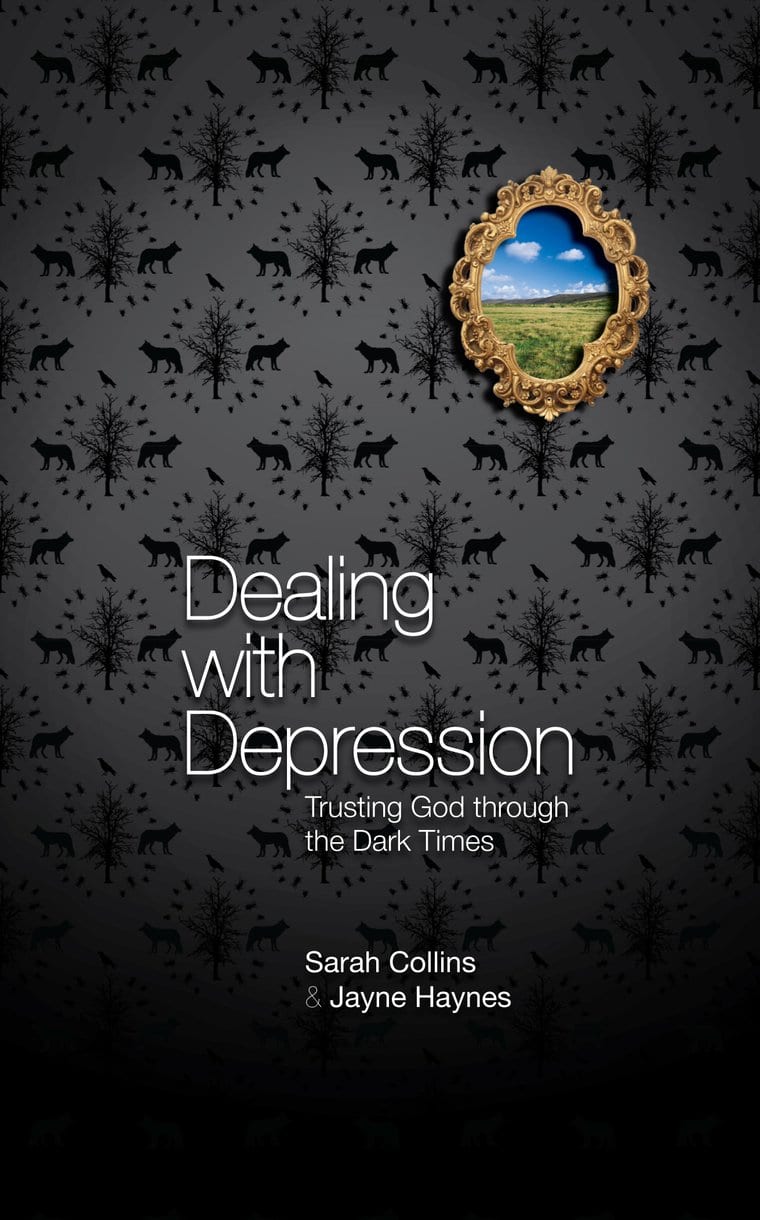Back in 2005, Tom Cruise made a public spectacle of himself when he criticized Brooke Shields’s use of prescription drugs to overcome severe post-partum depression. Among the more memorable moments of the debacle was an interview with Matt Lauer when an adamant Cruise offered this:
I’ve never agreed with psychiatry, ever. . . . I know that [it] is a pseudo-science. . . . Here’s the problem. You don’t know the history of psychiatry. I do. . . . What happens, the antidepressant, all it does is mask the problem. There’s ways, [with] vitamins and through exercise and various things. . . . I’m saying that drugs aren’t the answer, these drugs are very dangerous.
Cruise’s particular views were undeniably linked to his Scientology, but I remember thinking at the time that I had heard precisely the same sentiments among my Christian friends. That I had once argued them with the same certainty myself.
Dealing with Depression
If depression is controversial in the world at large, it is even more so in the church, because it is elusive and difficult to understand. It manifests itself in a complex mix of physical, mental, emotional, and spiritual symptoms until it is almost impossible to separate cause from effect. What in one person may stem from guilt (either real or imagined) can in another person be purely biological or circumstantial. To complicate matters, it doesn’t play favorites—so much so that it is referred to as “the common cold of the mind” (14).
Given depression’s frequency, we shouldn’t be surprised when we or someone we love falls prey to it. But we continue to be caught off guard. That’s why the book Dealing with Depression: Trusting God through the Dark Times is so helpful. In it, Sarah Collins, a previous teacher at St. Ebbes, Oxford, and Jayne Haynes, part-time GP based in Oxford, combine their experience in Christian ministry and family medicine to provide a straightforward, accessible introduction to the causes, treatments, and spiritual implications of depression. It is intended as a primer for those either helping loved ones or suffering themselves.
And while the book (the authors use the diminutive “booklet” in the introduction) is not comprehensive, its value lies precisely in its brevity. One painful irony of depression is that in the middle of it, the last thing you are able to do is wade through thick, academic writing to find answers. So when the basics are contained in one easily accessible reference, beginning to understand depression somehow becomes manageable. Collins and Haynes do include a list of additional resources when more information is needed, as well as stories from those who have personally battled depression.
Definition and Treatments for Depression
The book begins with an explanation of what depression is and what it is not. This is especially necessary because as our awareness to depression grows so will the temptation to self-diagnose every period of unhappiness as depression. And as the authors point out, “an incorrect label of depression can be just as harmful as refusing to acknowledge a genuine problem” (21).
It then moves forward to discuss standard treatments including self-help (utilizing books and other resources individually), talking treatments (counseling, cognitive behavioral therapies, and psychodynamic psychotherapies), and of course, medication. And while Collins and Haynes do not “believe that there are any specific concerns for Christians considering using antidepressant medication or ETC [electro-convulsive therapy]” (47), they quickly recommend enlisting the help of mature Christian friends and pastoral counsel to navigate treatment options. Ultimately they advise using whatever treatments seem effective in each particular case.

Dealing with Depression: Trusting God through the Dark Times
Sarah Collins and Jayne Haynes
Dealing with Depression: Trusting God through the Dark Times
Sarah Collins and Jayne Haynes
Depression is a common complaint in the doctor’s surgery and 1 in 5 of the population that is 20 percent of people will have at least one major episode in their lifetime. We are reassured here that just like our physical health we can go through good and bad emotional health. But how does the Christian deal with this? It is so easy for us to be riddled with guilt but in this book the Christian is reassured that God knows and deals with us by grace, he helps us move from guilt to grace.
I was surprised that Collins and Haynes don’t define or explain the nature of CBT or psychodynamic psychotherapies and was left with several questions. This is an unfortunate oversight particularly since they caution Christians about the need to evaluate therapy in light of relevant biblical teaching. It would be helpful to at least have a basic sense of what you might encounter in such situations.
Spiritual Implications of Depression
Even in an ideal treatment scenario, believers will have to engage the spiritual implications of living with depression, and so Collins and Haynes devote the remaining chapters to this. They begin by reassuring sufferers that being a Christian and being depressed are not mutually exclusive but that depression will present unique challenges to the spiritual life often in the form of illegitimate guilt, doubt, and a sense of “having been abandoned by God” (53). As the authors recognize, in this place, depressed believers “are unlikely to be experiencing any joy in Christ other than perhaps a vague intellectual assent to the [truth]” (53).
And this, they say, is precisely why “church family plays an absolutely vital role” (55) in supporting depressed Christians. In the middle of their weakness, we become a place of safety, security, and grace. To do this, Collins and Haynes offer specific attitudes and actions to avoid (e.g. judging, being too quick to offer solutions, and making the person your project) as well as practical ways to help (e.g. pray, listen, praise, reassure with the truth).
Ultimately as we support our depressed brothers and sisters, we must do so fully conscious of their spiritual fragility. Collins and Haynes suggest that “a change of expectations can help” (53). For example, “rather than aiming for in-depth Bible study every day, simply reading through a psalm might be a more realistic aim and praying short, honest prayers” (53). And using Psalms as a template, they propose that “it is better to pray real, honest, even angry prayers than not to pray at all. Prayer recognizes that God is still God” (64–65).
I found this approach honest and refreshing. It offsets the common temptation to employ overwrought spiritual clichés that can actually heighten a depressed believer’s sense of alienation. Collins and Haynes rightly recognize that what may be most helpful in the moment is not a long, awkward conversation about spiritual things but a hug and true friendship.
To be clear, Collins and Haynes by no means minimize the necessity of Scripture, prayer, and Christian community in the recovery process. And ultimately the greatest counsel they offer is to understand that God does care, that he knows our weaknesses and “remembers that we are dust” (Ps. 103:14).
As we support those suffering from depression, we must gently assure them that there is hope and purpose even in the midst of their pain. God has not abandoned them; Christ himself is a Great High Priest who intercedes for them, and ultimately he is drawing them closer to Himself. That’s good news for anyone lost in depression’s maze of doubt, pain, grief, and uncertainty.
Quite frankly, that’s good news for the rest of us too.




































